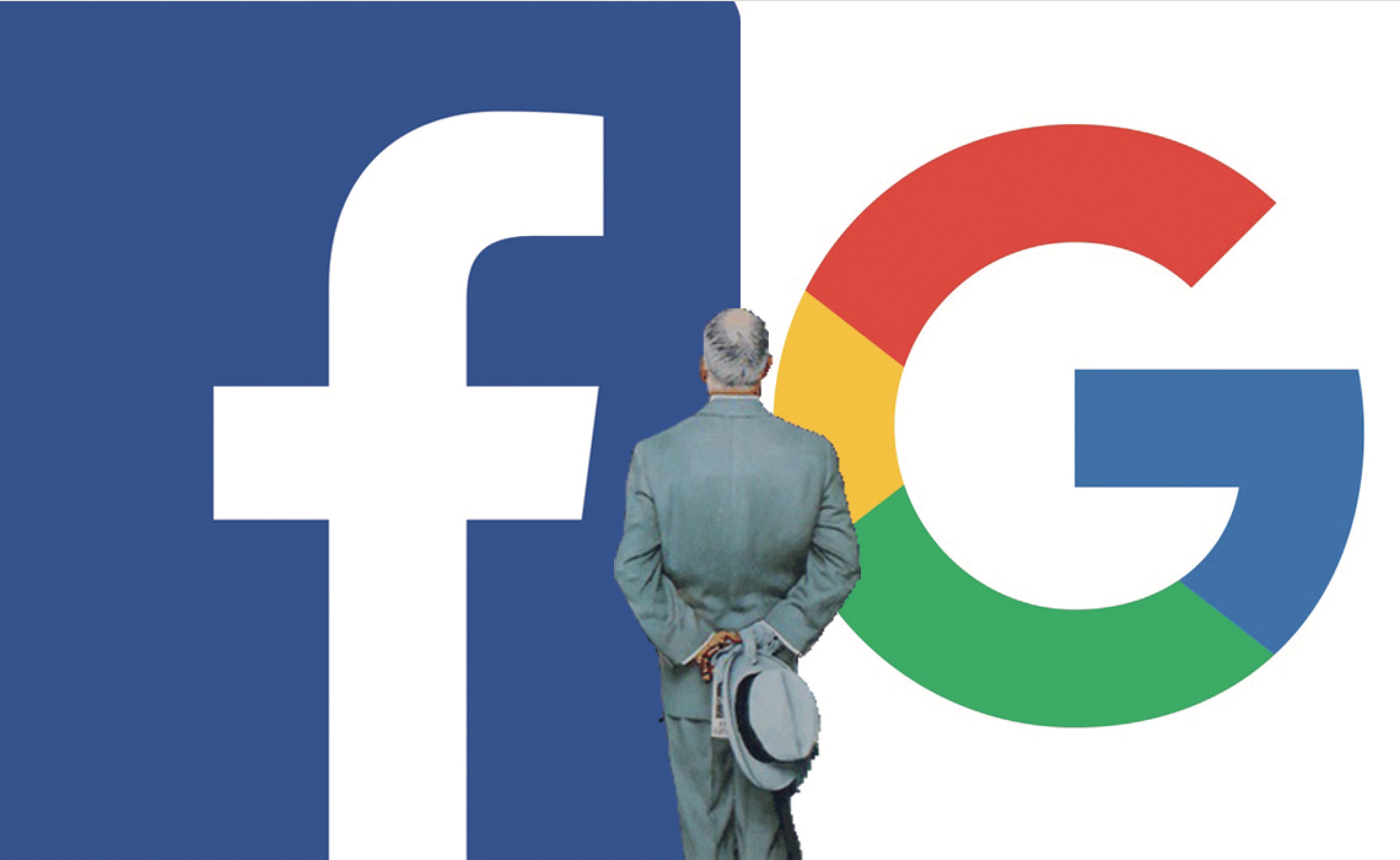Google and Facebook ads are expected to take 50% of all digital ad revenue worldwide this year; 60% in the United States. That makes Google (who went public in 2004) and Facebook (who went public in 2012) the biggest behemoth in advertising ever.
Last week was a very good week for Google and Facebook ads. Facebook announced it made $9.3 billion this quarter, +45% compared with last year. Google’s parent company, Alphabet, posted earnings of $26.0 billion in the same time period, +21% from a year ago. The vast majority of all this revenue came from advertising, 87% for Google, and a whopping 98% for Facebook.
What’s changed? What does this teach us? Where is it going?
Here are 7 lessons learned from Google and Facebook ads dominance.
- REACH HAS BEEN REDEFINED: Advertisers are flocking to Google and Facebook ads because they reach the most people. There are 1.94 billions Facebook users and 3.5 billion searches on Google every day. “Marketers aren’t going to get fired for hiring Facebook and Google,” said Harry Kargman, chief executive of Kargo, which manages digital marketing for media companies including Time Inc.
- BEST RESOURCE FOR BUYING BEHAVIORS: People spend 50 minutes a day on Facebook. On Google, it’s an hour a day on weekdays and two and a half hour on weekends. Six Facebook and six Google-owned apps account for more than 36% of the time spent on mobile. And Google and Facebook know about every click. And, if those clicks lead to a purchase with a credit-card or either platform and anyplace affiliated, Google and Facebook know the buying behavior.
- TARGETING IS AN AREA OF EXPERTISE: With all that information, ads can be be targeted by gender, demographics, affinities, topics of interest, time of day, day of week and geography (down to the mile-radius level around a specific location).
- DATA IS AVAILABLE AND DASHBOARDS ARE ACCESSIBLE: Data on users and their preferences and behavior is the Holy Grail for most advertisers, and the reality is that Google and Facebook have orders of magnitude more data than their nearest competitors, and more ways to slice and dice it. Google Adwords dashboard are sophisticated, customized and can be linked to Google Analytics to show both ad performance and website migration and conversion activities. Facebook Ads Manager and Facebook Insights can track audience growth, engagement and clicks to conversions as well.
- COMPLEMENT RATHER THAN COMPETE WITH EACH OTHER: Although Google and Facebook may appear like a Coke vs Pepsi competition, the two are much more complementary than you might think. Paid search, which has become synonymous with Google Ads, focuses on targeting people based on keywords they search. Facebook ads reach people looking to find out what others, mostly people they know, are doing and saying.
- FOR EVERYMAN TO ENTERPRISE: 41% of small businesses use Facebook. It is estimated over 3,000,000 businesses advertise on Facebook. Over 3,000,000 businesses are also estimated to advertise on Google. Google and Facebook ads have created an ecosystem where both are equally important.
- AD SATURATION MAY BE AN ISSUE AT SOME POINT: There is only so much space in a Facebook timeline and so many search pages on Google. Video is one market that Facebook and Google both view as a crucial new frontier. With huge investments planned, the companies are preparing to do to the television advertising business what they have long since done to traditional print advertising: namely, take much of it for themselves. Facebook’s Instagram unit is also becoming a bigger producer of revenue, with video likely to be a big part of the mix.
Growth for Google and Facebook ads are making the future of rivals more uncertain. In the U.S. market, no other digital ad platform now has market share above 5%.
Do these lessons explain the dominance of Google and Facebook ads to you? Do you need help determining where a digital advertising strategy for your business using Google and Facebook ads should go?

